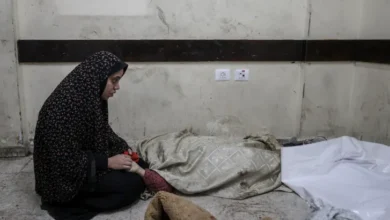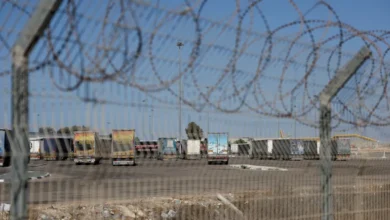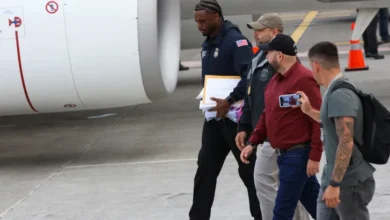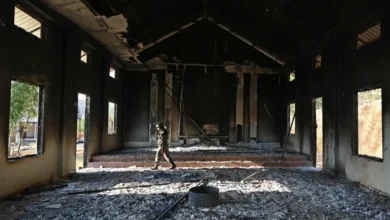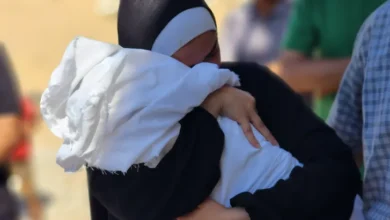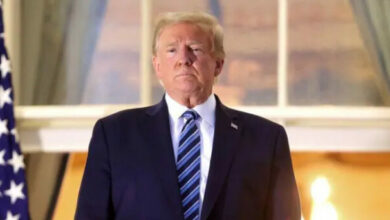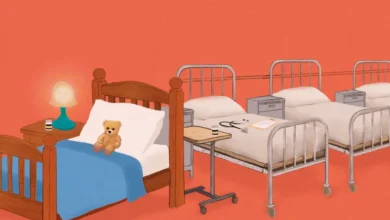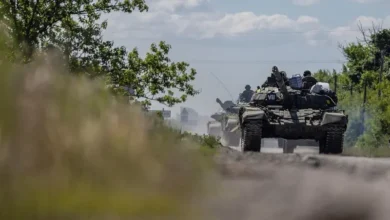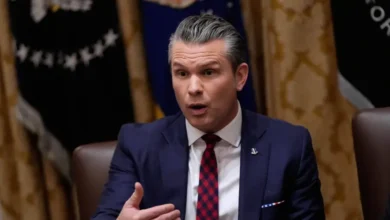Indigenous leaders demand apology, reparations from King Charles
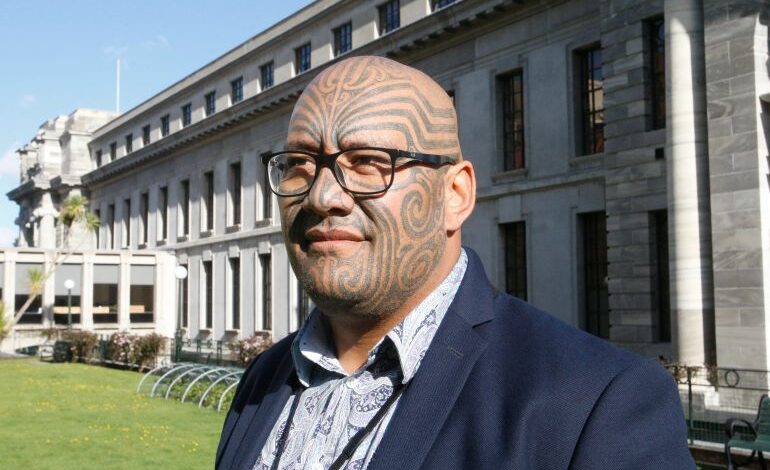
On the eve of King Charles’s coronation, Indigenous leaders from around the globe have called on the British monarch to apologise and make amends for what they call ‘genocide’.
A joint letter published on Friday by 12 Indigenous advocacy groups in former British colonies demanded the new king “acknowledge the horrific impacts on and legacy of genocide and colonisation of the Indigenous and enslaved peoples of Antigua and Barbuda, Aotearoa (New Zealand), Australia, The Bahamas, Belize, Canada, Grenada, Jamaica, Papua New Guinea, Saint Kitts and Nevis, Saint Lucia, and Saint Vincent and the Grenadines”.The letter also listed key demands, including a formal apology, the repatriation of the remains and cultural artefacts of Indigenous peoples, financial reparations, and requests the king to “help our communities recover from centuries of racism, oppression, colonialism and slavery”.
Rawiri Waititi, co-leader of New Zealand’s Te Pāti Māori (Māori Party) and a signatory to the letter, told Al Jazeera that “Indigenous peoples are speaking up around the world to ensure that the Crown takes full responsibility for the impacts, the damage and the hurt it created.”
British colonisation began in the late 16th century, and at its height in 1922, the United Kingdom, with the monarch as its head of state, held sway over more than 450 million people across nearly a quarter of the globe.
Indigenous peoples in colonies such as Australia, New Zealand and Canada were severely harmed by the invasion of their traditional lands, and thousands were killed as the British sought to cement control over the territories they had seized. Indigenous people were also exposed to new diseases, while punitive assimilation policies led to the loss of language and culture, and the forced removal of children in policies that continued into the second half of the 20th century.
Communities throughout the Caribbean were affected in similar ways, while slavery uprooted millions from Africa to work on sugar plantations throughout the islands.
This effect of these actions, which the joint signatories describe as “crimes against humanity”, resulted in an intergenerational legacy of trauma and inequities in key social indicators such as high incarceration rates and endemic poverty in affected Indigenous communities.Waititi described this legacy as “the tail of the monarchy whipping Indigenous peoples today”.
“We are calling on [King Charles the Third] to apologise for that,” he said. “Because once he apologises for the genocide [and] the colonisation of Indigenous peoples all over the world and the enslavement of our people by his empire, then we can start to address [contemporary] issues.”A joint study between the Australian National University and the British Museum conducted between 2016 and 2019 found about 38,400 Indigenous Australian objects in institutions across the UK and about 600 in Ireland.
Last year, the Australian federal government announced a new cultural precinct in the nation’s capital Canberra, called Ngurra — meaning ‘home’ in Indigenous languages, including Ngaanyatjarra and Pitjantjatjara.
The precinct will also include a National Resting Place for the remains of Indigenous ancestors brought home from global museums and institutions.
Along with the demands of cultural and bodily repatriation, the joint letter also calls for financial reparations to reflect the stolen wealth of Indigenous and enslaved peoples.
Like other European empires and their respective monarchs, British wealth increased significantly from the exploitation of land, labour and resources in the colonies.
While Indigenous peoples in former colonies grapple with poverty — the legacy of colonisation, according to Waititi — Forbes magazine estimated recently that King Charles’s personal wealth amounted to “at least $500 million in personal assets with another $46 billion held in trust as the sovereign”.
Whether or not the king will respond to the groups’ demands is not clear, but this is not the first time Indigenous peoples have petitioned a British monarch directly.
As far back as 1846, Tasmanian Aboriginal people petitioned Queen Victoria regarding the crown’s failure to uphold a treaty agreement.In 1935, Indigenous Australian leader and activist William Cooper wrote to King George V and included a petition signed by 1,814 Indigenous people, requesting “that His Majesty would intervene through medium of Majesty’s Government in the Commonwealth of Australia … to prevent the extinction of the Aboriginal race”.
In 1977, Indigenous Australian activist and leader Michael Mansfield personally handed Queen Elizabeth II a letter demanding land rights.
Opportunity to ‘reset the relationship’
The latest letter was also signed by Australian Indigenous Senator Lidia Thorpe, who heads up the Blak Sovereign Movement, and former Indigenous Senator and sportswoman Nova Peris, who also represents the Australian Republic Movement.
In a separate statement, Thorpe said that “the British monarchy oversaw the oppression of First Nations peoples in British colonies all over the world. The horrific impacts of British colonisation, including the genocide of our people, theft of our land and denigration of our culture, are still felt today.”
Thorpe also demanded the Australian government implement a treaty and truth-telling process, as well as cut ties with the crown and become a republic.
While Australia’s Prime Minister Anthony Albanese has said he is “not a monarchist” and has even installed an Assistant Minister for the Republic, he has also stated that he will swear the oath of allegiance to the new king at Saturday’s coronation.
Along with letters and petitions to successive monarchs, Indigenous peoples in Australia have also long sought the formal recognition of genocide on the continent.
Widespread massacres occurred across Australia after British colonisation — the last took place in 1927 — with about half of them led by police forces.
The devastation of colonisation was so great in the Australian state of Victoria that by 1929, official records placed the number of remaining so-called ‘full-blood’ Indigenous people at 53 and the number of ‘half castes’ at 607.
About 30,000 Indigenous people were thought to have lived in the region before the arrival of the British, with some estimates as high as 60,000.
A 1997 report, Bringing Them Home, also concluded that the removal of up to 100,000 Indigenous children from their families between 1900 and 1970 for the purposes of assimilation amounted to genocide.
The finding was vehemently rejected by Australia’s then-conservative Prime Minister John Howard, who as recently as 2014 reiterated that “I didn’t believe genocide had taken place, and I still don’t.”
Waititi told Al Jazeera that without a formal apology and an acknowledgement of the groups’ demands, King Charles III would be yet “another monarch who will continue to ignore the plight of Indigenous peoples all over the world”.Co-signatory, Chief Terry Teegee from the British Columbia Assembly of First Nations in Canada, stressed that the May 6 coronation represented “an opportunity to reset the relationship between the crown and Indigenous peoples”.
“We urge the crown to take our concerns seriously and to work with us on concrete actions to address a history and a present reality which continues to impact the lives of countless people,” he said.
